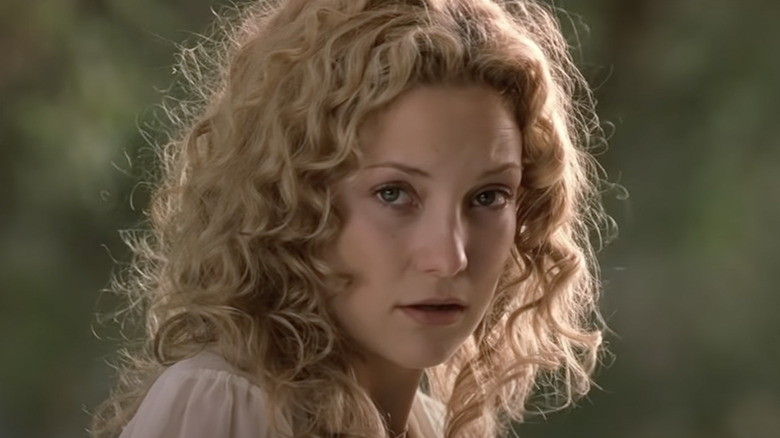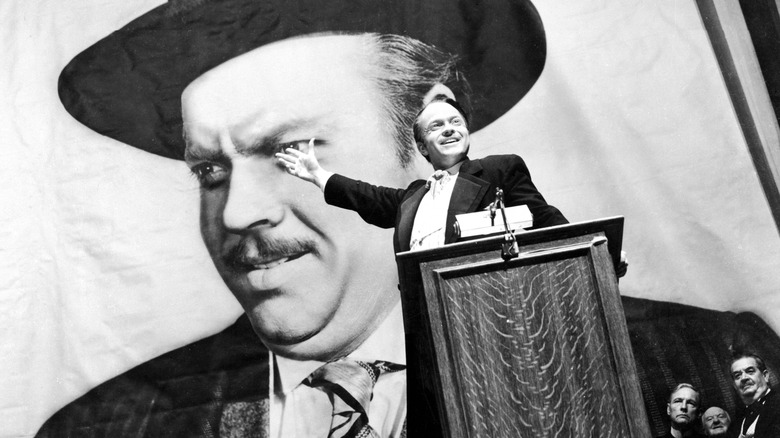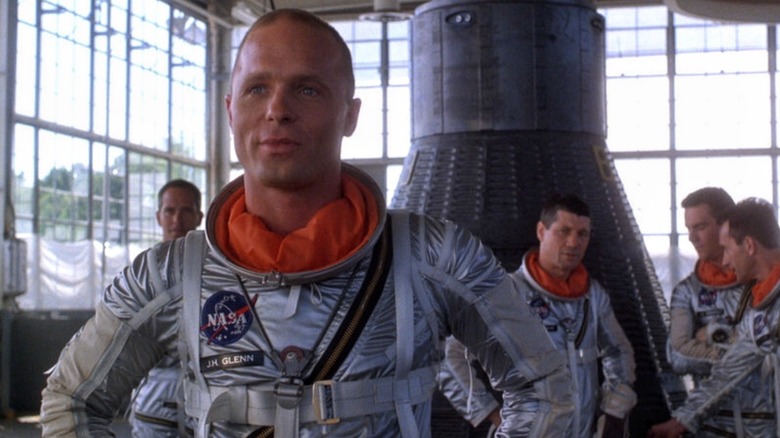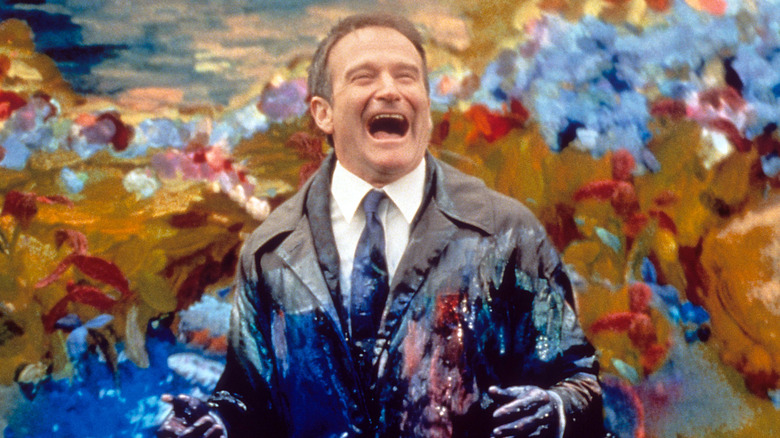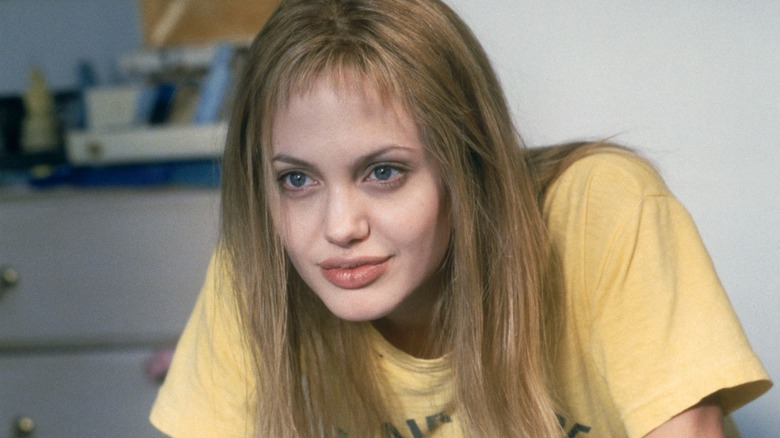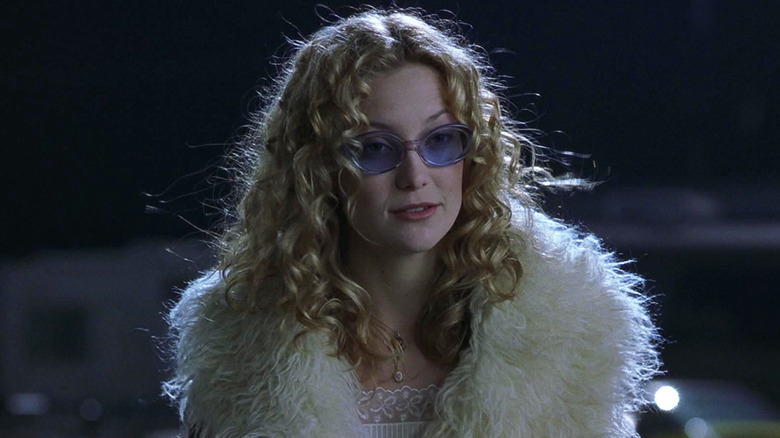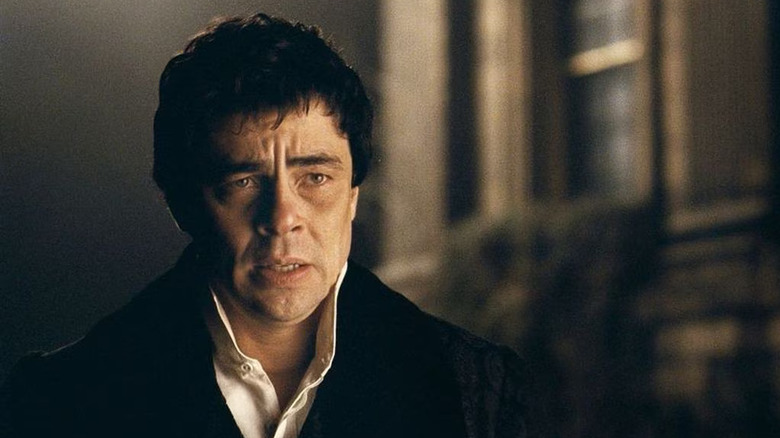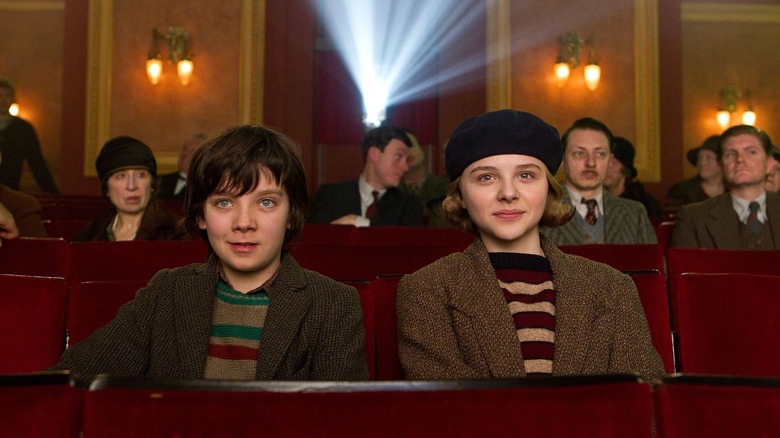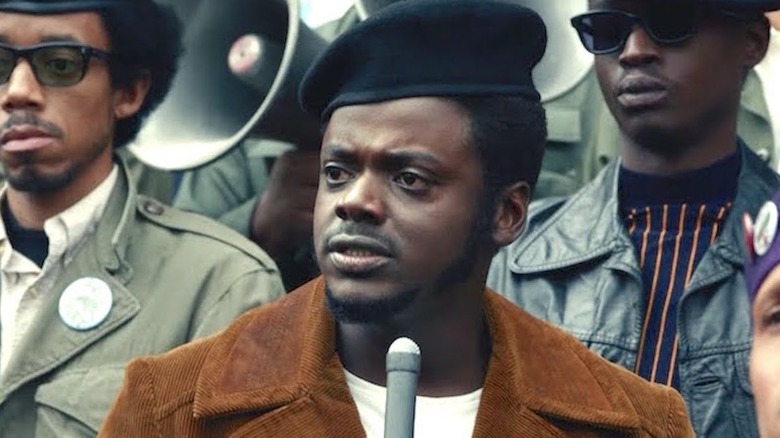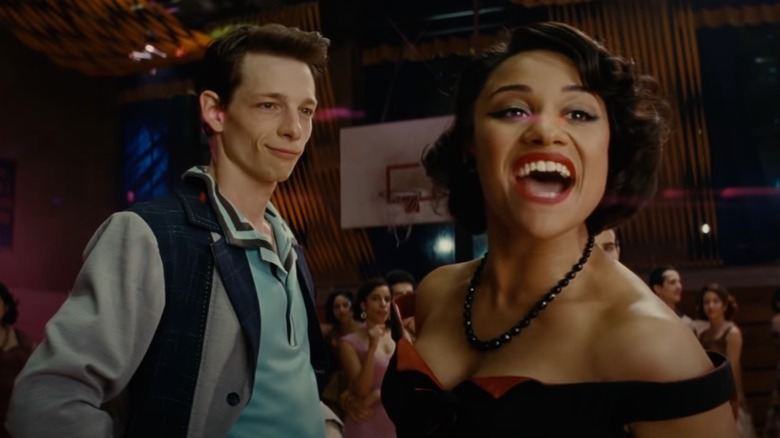12 Oscar-Winning Films That Failed At The Box Office
Oftentimes, the films that are critically successful aren't always the ones that are commercially viable, too. This disconnect is represented in two different displays of a film's success: the box office, and the Academy Awards.
While the box office keeps track of which films make the most money, the Academy Awards are an opportunity for professionals in Hollywood to pay tribute to the best films of the year. That being said, there are many films that were beloved by the Academy that didn't make waves at the box office, with some even losing money in the process. However, as the Academy Awards prove, sometimes the most memorable films aren't the ones that make the most money.
Some of the films on this list don't need the validation of box office results to remain etched in movie history, as they have won best picture or best adapted screenplay for their strengths. Others were instead rewarded for the performances of the actors in the film, who blew away fans even if the films themselves didn't attract major mainstream audiences. Whichever way you look at it, these films deserved the awards they got — even if audiences at the time didn't show up.
Citizen Kane
It seems ridiculous to measure the success of a film like "Citizen Kane" by examining box office numbers and Academy Award nominations. The film is widely regarded as one of the greatest films ever made, despite premiering in theaters all the way back in 1941. Directed by and starring Orson Welles, "Citizen Kane" follows a journalist investigating the mysteries surrounding the death of newspaper mogul Charles Foster Kane, roping in numerous people throughout his life who have all had contradictory experiences with the man.
However, when "Citizen Kane" was first released, it was subject to controversy due to the similarities between its titular character and American media baron William Randolph Hearst, with many critics feeling the film was an undeserved attack on the man's legacy. Hearst's personal distaste towards the film led to him banning any promotion or mention of it in the newspapers he owned, stifling its advertising campaign. As a result, "Citizen Kane" lost over $160,000 during its initial box office run.
At the 14th Academy Awards in 1941, "Citizen Kane" was nominated for numerous categories, though only took home one trophy: best original screenplay for Welles and Herman J. Mankiewicz. Nevertheless, its legacy has lived on to this day, making its disastrous box office run a mere fun fact in the film's indelible history.
The Right Stuff
"The Right Stuff" was written and directed by Philip Kaufman, based on a book by Tom Wolfe centering on the group of American military pilots who were selected to be the first astronauts for Project Mercury in the 1950s. The cast included the likes of Ed Harris, Dennis Quaid, Sam Shepard, and Barbara Hershey, as well as early appearances from future stars like Jeff Goldblum, Harry Shearer, and Pamela Reed. At the 1984 Academy Awards, "The Right Stuff" received a total of eight nominations, including best picture, best supporting actor for Shepard, and best original score.
Ultimately, "The Right Stuff" nabbed four of its eight nominations: best original score, best film editing, best sound, and best sound effects editing, the latter of which is no longer a category at the Academy Awards. The film was also beloved by critics, with The New York Times calling it "probably the brightest and the best rookie/cadet movie ever made." However, this critical success didn't translate to box office results.
Upon its release in 1983, "The Right Stuff" ended up grossing just $21 million at the box office throughout its entire domestic run, failing to break even against its $27 million budget. The film's failure was disastrous for their production company, The Ladd Company, which had previously seen success with "Chariots of Fire" and "Blade Runner," but subsequently shut down in 1984.
What Dreams May Come
By 1998, Robin Williams was a certified movie star, having had both commercial success in films like "Good Morning, Vietnam" and "Jumanji," as well as critical success with performances in "Dead Poets Society" and "Good Will Hunting," the latter of which won the comedian the Oscar for best supporting actor in 1998. Hot off his Oscar win, Williams' next role was in the 1998 drama "What Dreams May Come," where he played a man who dies in a car crash and attempts to save his wife from eternal damnation from the afterlife.
The film was positively reviewed by critics, but was blocked from topping the box office by DreamWorks' "Antz." By the end of its run, however, "What Dreams May Come" grossed a total of $55 million domestically, though this paled in comparison to its alleged budget of $90 million. Though it was based on a successful book by Richard Matheson, the original author also denounced the adaptation of his work.
Nevertheless, "What Dreams May Come" still found success at the Academy Awards, nominated for both best art direction and best visual effects, winning the latter over "Armageddon" and "Mighty Joe Young." Thankfully, Williams wouldn't have to worry for too long about his post-Oscars career, given that the film was also released the same year as the box office success "Patch Adams."
Girl, Interrupted
Susanna Kaysen's memoir chronicling her experiences in a mental institution in the 1960s was a best-seller following its release in 1993. It wasn't long before the rights to make a film adaptation of it were optioned, eventually signing director James Mangold and stars Winona Ryder, Angelina Jolie, Elisabeth Moss, and Jeffrey Tambor. Ryder and Jolie took center stage as two psychiatric patients who bond with each other despite their crippling diagnoses.
Though there was universal praise towards the performances of Ryder and Jolie, some critics were divided on the movie. Even the original author, Kaysen, criticized Mangold for butchering the original content of her memoir, though even she acknowledged that Jolie's performance was a highlight. Fortunately, they weren't the only ones to think highly of Jolie's performance in the film. The actress went on to win the Oscar for best supporting actress in 2000 for "Girl, Interrupted," which was also the film's only nomination at the awards ceremony.
Box office-wise, "Girl, Interrupted" wasn't as much of a best seller as the book it was based on. It grossed only $28 million domestically against a $40 million budget, making back the rest of its budget with international sales. Still, considering the star power of Ryder and Jolie in 1999 as well as the success of the book, it was quite a disappointment commercially.
Almost Famous
"Almost Famous" has seen a lot of success in retrospect, becoming a cult classic and quintessential film depicting the rock-and-roll scene of the 1970s. The 2000 film is semi-autobiographical for its writer and director, Cameron Crowe, who spent his teenage years as a reporter for Rolling Stone magazine, just like the protagonist of "Almost Famous." The film was acclaimed upon release, with film critic Roger Ebert nominating it as the best film of the year.
Surprisingly, "Almost Famous" was also a box office bomb, only grossing $47 million against a budget of $60 million, including international sales. The film was nevertheless showered in awards, including the Grammy Award for best compilation soundtrack album, and Golden Globes for both best film (musical or comedy) and best actress in a supporting role for Kate Hudson. At the Academy Awards, it received four nominations, but only won best original screenplay.
Nowadays, the legacy of "Almost Famous" is much bigger than its box office numbers or Academy Awards victories. A musical adaptation premiered in San Diego in 2019, later transitioning to Broadway in 2022.
The Wolfman
"The Wolfman" is an example of a film that might have had a solid box office turnout, had it not been for the film's over-inflated budget. The 2010 film starring Benicio del Toro as its titular Universal Pictures monster was victim to a change in directors, extensive reshoots, and even replacements in composers. Its budget ended up totaling $150 million, which the film sadly wasn't able to make up in worldwide box office returns, only making back $140 million by the end of its theatrical run.
To make matters worse, "The Wolfman" wasn't a critical darling, either. Rolling Stone wrote of the monster movie, "'The Wolfman' isn't Shakespeare, and it damn well shouldn't be," and also criticized the film's misuse of actress Emily Blunt as the fiancee of del Toro's actor-turned-Wolfman. Even the president of Universal Studios at the time called it one of the worst movies the studio had ever put out, despite all the warning signs that seemed to occur during production.
Against all odds, "The Wolfman" did have one thing going for it: Its makeup, which practically transformed Benicio del Toro into its titular monster. It easily won best makeup at the 2011 Oscars against "Barney's Version" and "The Way Back," though the film has pretty much faded from the memory of most monster movie fans, and for good reason.
Hugo
It's quite rare to associate a director like Martin Scorsese with box office failure, but then again, it's also rare to associate him with theatrical 3D films. Nevertheless, the director dipped his toes into the spectacle for the 2011 drama "Hugo," adapting the 2007 Brian Selznick book "The Invention of Hugo Cabret," centering around an orphan boy in 1930s Paris, starring Asa Butterfield, Chloë Grace Moretz, Ben Kingsley, and Emily Mortimer.
The film was a critical darling, with many praising Scorsese's use of visuals as well as the film's heart and family-centric tone. It was consistently ranked high on critics' lists of the best films of 2011, and ended up gaining a total of 11 nominations at the 2012 Academy Awards, including Best Picture and Best Director. "Hugo" ended up winning five of those 11 nominations: best visual effects, best cinematography, best sound mixing, best sound editing, and best art direction.
Despite the high critical praise, as well as the star power both in front of and behind the camera, "Hugo" was a huge box office flop. The film only grossed $74 million domestically against a budget of approximately $170 million, making a total of $185 worldwide. Many attributed the film's failure at the box office to its Thanksgiving release date opposite box office successes like "The Muppets," "The Twilight Saga: Breaking Dawn – Part 1," and "Happy Feet Two."
Blade Runner 2049
"Blade Runner" wasn't the biggest box office success when it was released in 1982, despite being a gritty sci-fi flick starring then-megastar Harrison Ford as a cop hunting down malfunctioned synthetic humans known as "replicants." Even though the film didn't perform well, it later became incredibly influential to the science fiction genre as a whole. It wasn't until 2017, however, that the film was finally followed up with a sequel, "Blade Runner 2049," featuring the return of Ford and new additions to the cast including Ryan Gosling, Ana de Armas, and Dave Bautista.
Like its predecessor, "Blade Runner 2049" was beloved by critics, with particular praise for director Denis Villeneuve, its central cast, and how it expands upon the "Blade Runner" franchise. The film did receive criticism for its portrayal of women and sexism in the year 2049, though Villeneuve defended the film, telling Vanity Fair in 2017, "'Blade Runner' is not about tomorrow; it's about today. And I'm sorry, but the world is not kind on women."
"Blade Runner 2049" didn't fare well at the box office, in an ironic fate similar to the 1982 film. Deadline Hollywood attributed the film's failure domestically to both the niche audience of "Blade Runner" as a franchise, as well as the film's nearly three-hour runtime. It ended its theatrical run in the United States with only $92 million made back of its $150 million, only breaking even with its international number.
Marriage Story
As the late 2010s approached and the 2020s neared, it became a lot harder for non-superhero or franchise flicks to make money at the box office. The dominance of streaming services also hindered the ability of many films to have long and successful box office runs. Take, for instance, 2019's "Marriage Story," written and directed by Noah Baumbach, starring Scarlett Johansson and Adam Driver as a married couple enduring a vicious divorce involving their young son.
The film, like many of Baumbach's previous works, was a critical darling, praising the performances of Johansson and Driver, as well as supporting actors Laura Dern, Ray Liotta, and Alan Alda. It earned six nominations at the 2020 Academy Awards, including best picture, best actor, best actress, and best original screenplay. However, it only went home with one win, a well-deserved best supporting actress trophy for Laura Dern.
Nevertheless, the film's box office returns weren't as plentiful. Since it was distributed by Netflix, the film only got a limited theatrical release, and it came out on its streaming service a month later. In total, the film is speculated to have grossed only $2 million at the box office by the end of 2019 against a budget of $18 million, not including streaming revenue.
Judas and the Black Messiah
The early 2020s were a difficult time for movie theaters, given the COVID-19 pandemic resulting in shutdowns for months on end. Many films that were meant to have a theatrical release in 2020 ended up being delayed, and the pandemic even affected film festivals. For example, "Judas and the Black Messiah" had its 2020 release pushed back, eventually premiering at the 2021 Sundance Film Festival both virtually and in-person. The film was finally released on February 12, 2021, though it was simultaneously made available to stream on HBO Max for one month, as with all of the Warner Bros. pandemic releases.
As a result, "Judas and the Black Messiah," which starred Daniel Kaluuya as Fred Hampton of the Black Panther Party and his relationship with LaKeith Stanfield's FBI informant William O'Neal, grossed approximately $7 million at the worldwide box office. This was quite a disappointment compared to its $26 million budget, but its simultaneous release on HBO Max allowed the film to be viewed in over 1 million U.S. households by the end of its first month on streaming.
The film was beloved by critics, which translated to its six nominations at the 2021 Academy Awards, winning best supporting actor for Kaluuya (beating fellow nominee Stanfield), as well as best original song for "Fight For You" by H.E.R.
West Side Story
There have been several film adaptations of the musical "West Side Story," which re-interprets "Romeo & Juliet" in a 1950s New York City setting. However, in 2021 this musical film was directed by none other than Steven Spielberg, with playwright Tony Kushner penning the script. The cast included Rachel Zegler, Mike Faist, and Ariana DeBose, and wasn't released until December 10, 2021, as a result of COVID-19 delays. Upon its release, the film was acclaimed for its cast, Spielberg's direction, and fast pace despite being two and a half hours long.
However, as to be expected in the COVID-19 era, "West Side Story" was a major failure at the box office, grossing $76 million worldwide against a budget of $100 million. Disney chairman Bob Iger blamed the film's poor theatrical performance on the pandemic, as well as the competition against streaming services and other late 2021 releases like "Spider-Man: No Way Home," which dominated the box office at the time.
Nevertheless, "West Side Story" garnered seven nominations at the 2022 Academy Awards, including best picture and best director for Spielberg. However, to the surprise of many, the only one it took home was best supporting actress for Ariana DeBose, who stole the show in her performance as Anita, which allowed her to flex her experience on Broadway.
CODA
The biggest surprise of the 2022 Academy Awards was the night's biggest winner, "CODA," which took home best picture as well as best supporting actor for Troy Kotsur. The film, written and directed by Sian Heder, centers on Emilia Jones as Ruby, a child of Deaf adults (the acronym for which is the title of the film) who struggles to convey to her family her dream of becoming a singer and attending Berklee College of Music.
Following the virtual premiere of "CODA" at the 2021 Sundance Film Festival, the film was purchased by Apple TV+ for distribution. Though its domestic release was via streaming service, it was played theatrically overseas, where it grossed a total of $2 million despite having a budget of $10 million, including Apple's budget for an awards campaign, which certainly seemed to pay off.
The film was critically acclaimed, with Variety praising Heder's direction and singling out the film's warm-hearted tone, calling it "so enthrallingly well-acted, that you may come away feeling grateful that this kind of mainstream dramatic craftsmanship still exists." "CODA" also garnered criticism from parts of the Deaf community for its portrayal of Deaf characters as unable to understand the beauty behind music. However, the film's Oscars success made Kotsur the first Deaf man to win an Academy Award for acting.
